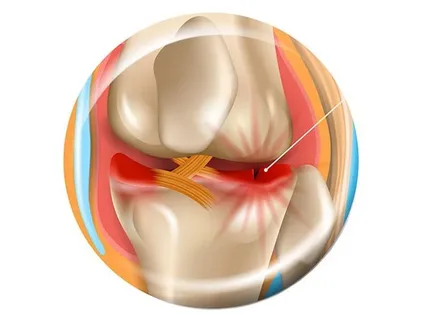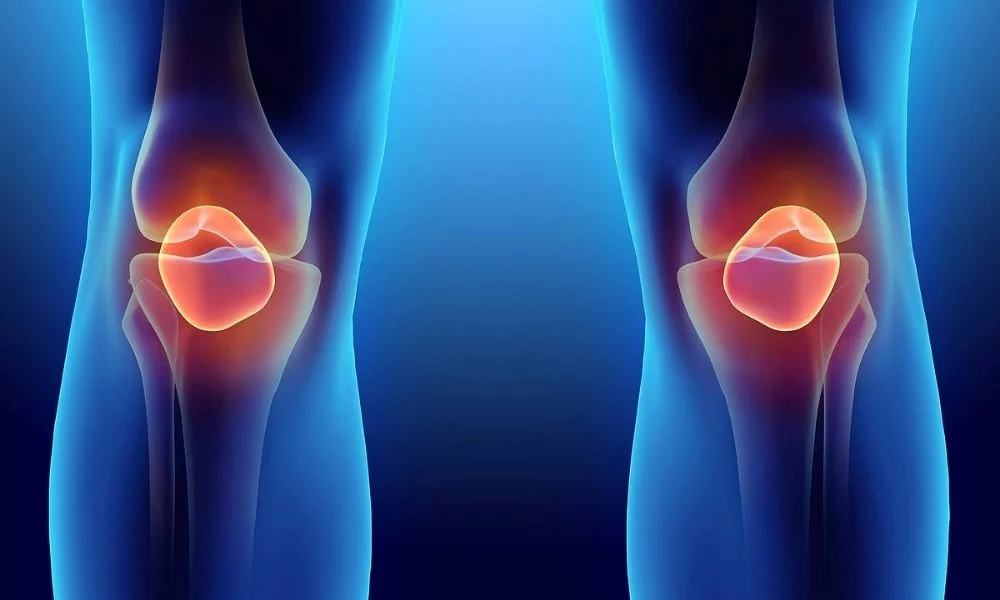Meniscus Tear Surgery
If you’re struggling with a meniscus tear, it’s important to know that effective treatment options are available. At Tristate Spine and Sports Surgery, led by Dr Aron Rovner, we specialize in meniscus tear surgery and other meniscus injury treatment techniques aimed at restoring your knee function and helping you return to your favorite activities. Whether through surgical or non-surgical methods, our goal is to tailor the treatment to your unique needs.

Understanding Meniscus Tears
The meniscus is a crucial piece of cartilage in your knee joint that acts as a shock absorber between the thigh and shin bones. A meniscus tear can occur due to a sudden twist of the knee or through degenerative changes over time.
Common meniscus tear symptoms include:
- Pain and swelling in the knee
- Difficulty straightening or bending the knee
- A clicking or locking sensation during movement
- Stiffness and decreased range of motion
If you’re experiencing any of these symptoms, it’s vital to seek prompt knee injury treatment.
Types of Meniscus Tears
Meniscus tears can vary in type and severity, and they are typically classified as follows:
- Vertical Tear: Extends vertically through the meniscus and is often associated with sports injuries.
- Horizontal Tear: Runs parallel to the joint line, commonly seen in older adults and can sometimes lead to a more complex tear pattern.
- Complex Tear: Combines multiple types of tears, often requiring more involved treatment.
- Bucket Handle Tear: A specific type of vertical tear that may cause the meniscus to move into the joint space, resembling a handle.
Determining the type of tear will help inform your treatment plan.
Diagnosing a Meniscus Tear
Getting a proper diagnosis is essential for the right meniscus tear treatment. Our team conducts a thorough evaluation, which may include:
- A detailed physical examination to assess pain and mobility.
- Imaging tests such as MRI to visualize the soft tissue structure of the knee.
- X-rays to rule out other potential injuries.
This comprehensive approach allows us to customize an effective treatment plan for you.
Meniscus Tear Treatment Options
Meniscus tear surgery is not always the first option; many tears can improve with conservative treatments.
Here’s a look at the various treatment options we provide:
Non-Surgical Treatments
- Rest and Activity Modifications: Taking a break from activities that exacerbate symptoms.
- Physical Therapy: Customized exercises to strengthen the muscles around the knee and improve flexibility.
- Medication: Nonsteroidal anti-inflammatory drugs (NSAIDs) to reduce pain and swelling.
- Corticosteroid Injections: Injected into the knee joint to alleviate inflammation.
These conservative methods can be effective, particularly for minor tears or patients who prefer to avoid surgery.
Meniscus Surgery
When conservative treatments fail or the tear is severe, meniscus surgery may be recommended.
There are three main types of surgical options:
- Meniscus Repair: This involves stitching the torn pieces back together, allowing the meniscus to heal itself. The surgery is often done through knee arthroscopy, a minimally invasive procedure that minimizes recovery time and discomfort.
- Partial Meniscectomy: In cases where the tear is too severe for repair, a partial meniscectomy involves removing the damaged portion of the meniscus while preserving healthy tissue.
- Meniscus Transplant Surgery: For patients with severely damaged menisci, transplantation from a donor may be an option.
- Meniscus Repair: This involves stitching the torn pieces back together, allowing the meniscus to heal itself. The surgery is often done through knee arthroscopy, a minimally invasive procedure that minimizes recovery time and discomfort.
Wondering which option is right for you? Contact us today for a consultation!

Recovery After Meniscus Tear Surgery
After meniscus tear surgery, recovery time can vary based on the type of procedure performed. Generally:
- Meniscus Repair: Full recovery may take six to nine months, including physical therapy to restore mobility and strength. You might need crutches and a knee brace for several weeks.
- Partial Meniscectomy: This typically has a quicker recovery, often allowing patients to return to light activities within four to six weeks
Returning to Work and Sports
Patients often wonder about the meniscus tear surgery recovery time for resuming sports and activities. Generally:
- Back to Work: Depending on your job, you may be able to return in one to two weeks following a partial meniscectomy, while a repair may require several weeks longer.
- Back to Sports: For athletes, a return to sports typically happens within three to six months after surgery, depending on the procedure and individual healing.
Why Choose Us for Your Meniscus Tear Treatment?
At Tristate Spine and Sports Surgery, we prioritize a personalized approach to your care. With our team’s expertise in orthopedic knee surgery, we are committed to helping you regain knee function and alleviate pain through our state-of-the-art treatment options. Dr. Rovner combines years of experience with advanced techniques to ensure you receive high-quality care in a supportive environment.
- Comprehensive Assessments: We take the time to understand your symptoms, medical history, and lifestyle.
- Minimally Invasive Techniques: Our knee arthroscopy procedures are designed to reduce recovery time and postoperative discomfort.
- Collaborative Care: We work with you to develop a recovery plan that best fits your goals and lifestyles, like maximizing your return to sports or daily activities.
Take the first step to a pain-free life! Contact us now to schedule a consultation.
Don’t Let A Meniscus Tear Hold You Back!
Dealing with a meniscus tear can be challenging, but with appropriate treatment, you can return to an active, fulfilling life. At Tristate Spine and Sports Surgery, we offer a range of effective treatment options, from conservative to surgical interventions. Let us help you regain your strength and mobility.
Don’t let knee pain hold you back any longer! Reach out today to learn more about our meniscus tear treatment options
Other Services
Book Your Appointment Today
Why Choose Us?
With years of expertise in spine and sports surgery, Dr. Rovner and our team provide personalized, patient-centered care.
Facilisis penatibus sapien sed dapibus sodales letius vitae tempor pretium phasellus habitant etiam augue mauris
Our offices are equipped with the latest technology to ensure accurate diagnoses and effective treatment plans.
Facilisis penatibus sapien sed dapibus sodales letius vitae tempor pretium phasellus habitant etiam augue mauris
Facilisis penatibus sapien sed dapibus sodales letius vitae tempor pretium phasellus habitant etiam augue mauris
Facilisis penatibus sapien sed dapibus sodales letius vitae tempor pretium phasellus habitant etiam augue mauris
Book an Appointment
Ready to take the next step?
Schedule your consultation today and discover how we can assist you!






